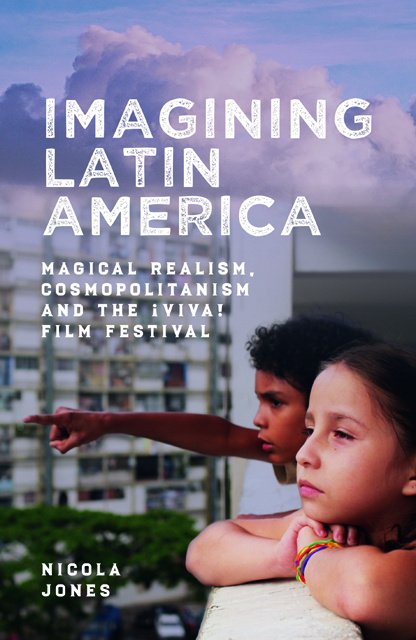Book contents
- Frontmatter
- Contents
- List of Illustrations
- Acknowledgements
- Introduction: Latin American Culture in the UK
- 1 British Identity, Cosmopolitan Anxieties and the Latin American Other
- 2 Latin America and Magical Realism in the British Press (1940–2015)
- 3 Cultural Consumption in Manchester
- 4 The Production of Latin America through ¡Viva!
- 5 Consuming Latin America through ¡Viva!
- Conclusion
- Appendix 1: Analysis of the British Press (1940–2015)
- Appendix 2: ¡Viva! Post-Screening Questionnaires and Interviews
- Bibliography
- Index
2 - Latin America and Magical Realism in the British Press (1940–2015)
Published online by Cambridge University Press: 14 January 2023
- Frontmatter
- Contents
- List of Illustrations
- Acknowledgements
- Introduction: Latin American Culture in the UK
- 1 British Identity, Cosmopolitan Anxieties and the Latin American Other
- 2 Latin America and Magical Realism in the British Press (1940–2015)
- 3 Cultural Consumption in Manchester
- 4 The Production of Latin America through ¡Viva!
- 5 Consuming Latin America through ¡Viva!
- Conclusion
- Appendix 1: Analysis of the British Press (1940–2015)
- Appendix 2: ¡Viva! Post-Screening Questionnaires and Interviews
- Bibliography
- Index
Summary
In order to examine one way in which Latin America has been encoded in the UK at a discursive level during the twentieth and twenty-first centuries, this chapter presents an analysis of Latin American magical realism in the British press from 1940 to 2015. Prior to the 1990s, Latin American culture, through mediums such as film, food, music and sport, was much less globalised than it is today. Travel to the region remained expensive for the majority of the British public and Latin America constituted an unpopular destination due to the region’s growing association with revolutions, dictatorships, guerrilla warfare and drug barons throughout the second half of the twentieth century. Literature was therefore a primary way in which Latin America was consumed in the UK and, during the second half of the twentieth century, magical realism became the foremost literary style associated with the region. In this chapter, I trace how magical realism became synonymous with the idea of Latin America in the British national press and how, over several decades, this association was mediated into a set of complementary codes, themes and journalistic narrative techniques that similarly came to exemplify Latin America. I begin by highlighting how the idea of Latin America and its literature in the press during the 1940s and 1950s was one of exoticism. The literature of the region then became associated with the surreal and unconventional in the 1960s as a result of the work of the Boom writers. Following the worldwide success of Gabriel García Márquez’s Cien años de soledad (1967) (One Hundred Years of Solitude, 1970), and the global expansion of Latin American magical realism, similar notions of strangeness and surrealism were gradually transferred to Latin America itself. For example, from 1967 and throughout the 1970s, academics and journalists in the press began to use words and themes concerning magic, mystery and unreality to describe the region. By the end of the twentieth century, despite the many scholars, literary journalists and Latin American writers who had begun to vociferously critique the association, these codes and themes deriving from magical realism had become a ‘primary interpretation’ (Hall et al., 1978) when describing Latin American cultural reality in the British press.
- Type
- Chapter
- Information
- Imagining Latin AmericaMagical Realism, Cosmopolitanism and the ¡Viva! Film Festival, pp. 49 - 82Publisher: Boydell & BrewerPrint publication year: 2021



